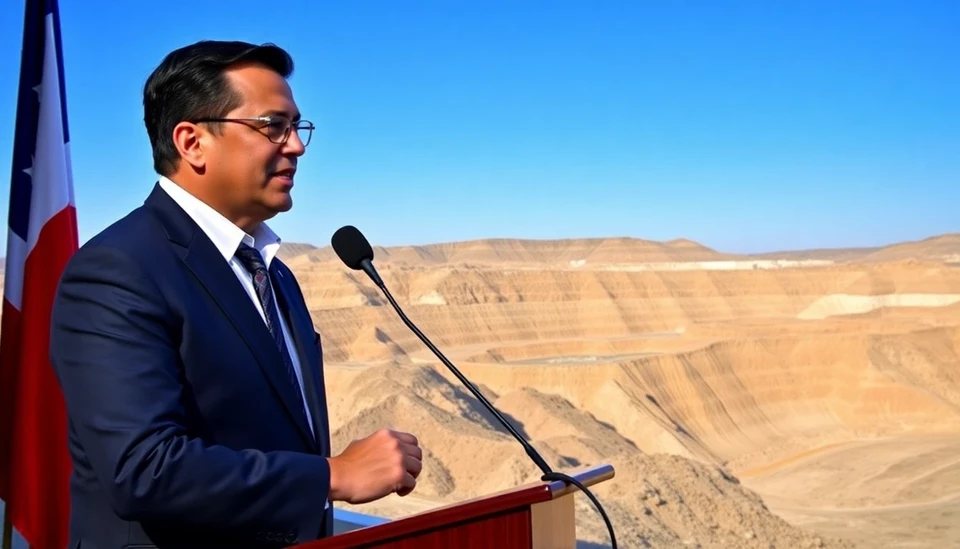
In a significant development on April 15, 2025, the leading candidate in Chile's upcoming presidential elections has announced plans to initiate a thorough investigation into the contentious lithium deal between Sociedad Química y Minera de Chile (SQM) and the state-owned copper company, Codelco. This announcement has raised crucial questions about the integrity of the deal and its implications for Chile's burgeoning lithium industry.
Chile has long been recognized as a global powerhouse in lithium production, and with the increasing demand for lithium-ion batteries, the country's role is more critical than ever. The lucrative nature of lithium has attracted both local and international interest, but allegations surrounding the SQM-Codelco deal highlight the potential for political and operational mismanagement within this vital sector.
The frontrunner’s call for an investigation stems from concerns about transparency and the potential negative impact the deal may have on Chile's lithium resources, which are among the richest in the world. Critics of the agreement have pointed out multiple red flags, including accusations of corruption and misallocation of national resources that could benefit private entities at the expense of public interest.
The candidate emphasized that a thorough review of the agreement is required to ensure that the benefits derived from lithium extraction are equitably distributed amongst Chileans, especially given that the country’s lithium reserves are a national treasure. The potential for political fallout is considerable, as the issue strikes at the heart of national pride and economic sovereignty.
As the Presidential race heats up, this investigation could become a pivotal issue influencing voter sentiment. Many voters are aligning with the frontrunner’s stance, advocating for greater accountability in the management of natural resources, which have historically played a significant role in Chile's economy.
The frontrunner has pledged to establish a task force that will include independent experts to scrutinize the deal and recommend reforms if necessary. The aim is not only to examine the specifics of the SQM-Codelco agreement but also to assess the broader implications for regulation and governance within the lithium sector.
This bold move reflects a growing public demand for ethical scrutiny in resource management and a desire to ensure sustainable practices in one of Chile's most promising industries. The outcome of this investigation could shape not only the future of the SQM-Codelco deal but also set a precedent for how the Chilean government handles similar agreements moving forward.
As the investigation unfolds, all eyes will be on the political landscape of Chile, where the relationship between government, industry, and citizens will continue to evolve in response to mounting demands for transparency and fairness.
The ongoing discussions around this vital issue encapsulate the intersection of politics, economy, and environmental responsibility, positioning it as a defining characteristic of the upcoming presidential campaign. With such high stakes, the question remains: will the investigation yield the accountability and reforms that Chilean citizens are demanding?
As the election approaches, this story is sure to gain momentum, with implications that extend beyond the borders of Chile, impacting how countries worldwide engage with their natural resources in an era of heightened environmental awareness.
#ChileElection2025 #LithiumInvestigation #SQM #Codelco #NaturalResources #Transparency #PoliticalAccountability
Author: Daniel Foster




